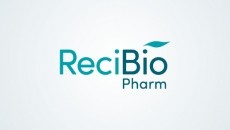Brain Shuttle could deliver hope for brain disease sufferers, says Roche

In treating disorders that affect the central nervous system, it is necessary for a drug to penetrate the blood-brain-barrier. Such a delivery is problematic for many larger molecules, reducing the development of potentially effective protein and antibody therapies in brain conditions such as Alzheimer’s disease.
However, Roche has been developing a ‘Brain Shuttle’, comprising of a fragment of an antibody that that binds to a specific site on Transferrin Receptor (TfR) which aids a therapeutic antibody across the barrier, and yesterday positive results from a preliminary study of the technology were published in scientific journal Neuron.
“The findings of this investigational study potentially have major implications for the development of biologics-based treatment of brain disorders,” Roche spokesman Štěpán Kráčala told in-Pharmatechnologist.com.
“If we are able to clinically validate the results, it could open the door for the development of potent and more selective drug modalities, such as monoclonal antibodies, for devastating brain disorders and allow us to develop novel preventive treatments in areas where small molecules so far have failed.”
He added: “The possibility to use biotherapeutic modalities that were previously difficult to deliver to the brain will allow researchers to engineer very potent and selective drug candidates that could provide very effective treatments with high safety margins.”
As well as antibodies, Roche is investigating the technology with enzymes, neurotropic factors, peptides and antisense oligonucleotides. According to Kráčala, the firm is already investigating the use of the Brain Shuttle in pre-clinical tests for Parkinson's and Huntington's Disease, in collaborations with Prothena and ISIS respectively.
Passing the blood-brain-barrier
The need to discover new pathways across the blood-brain-barrier is highly unmet, he continued, with current targets in the brain either not “druggable” or needing to be administered locally by “rather painful and invasive techniques.”
Roche is not the first company to work on fulfilling this need. Genzyme previously developed its LipoBridge technology - a short chain of oligoglycerolipids which is formulated with the therapeutic agent in order to temporarily open up tight junctions in the blood-brain-barrier - and in 2009 collaborated with Dutch firm to-BBB on its biologics drug delivery system.
Companies have also been investing in the development of drug delivery devices in order to overcome the blood-brain-barrier. Eli Lilly teamed up with medical device maker Medtronic in 2011 to develop an implantable drug pump, whilst last year Avanir acquired OptiNose’s intranasal system which has the advantage of delivering drugs by circumnavigate the barrier.























